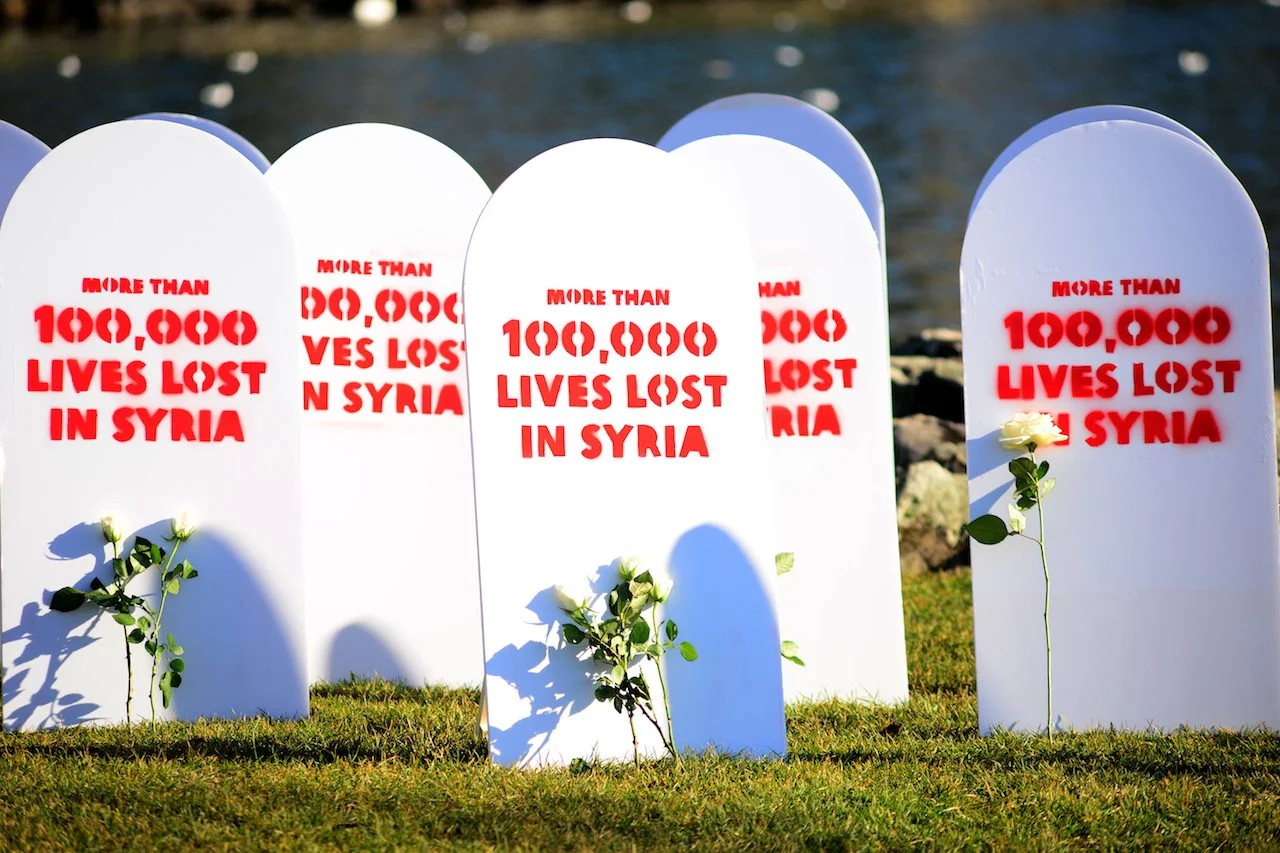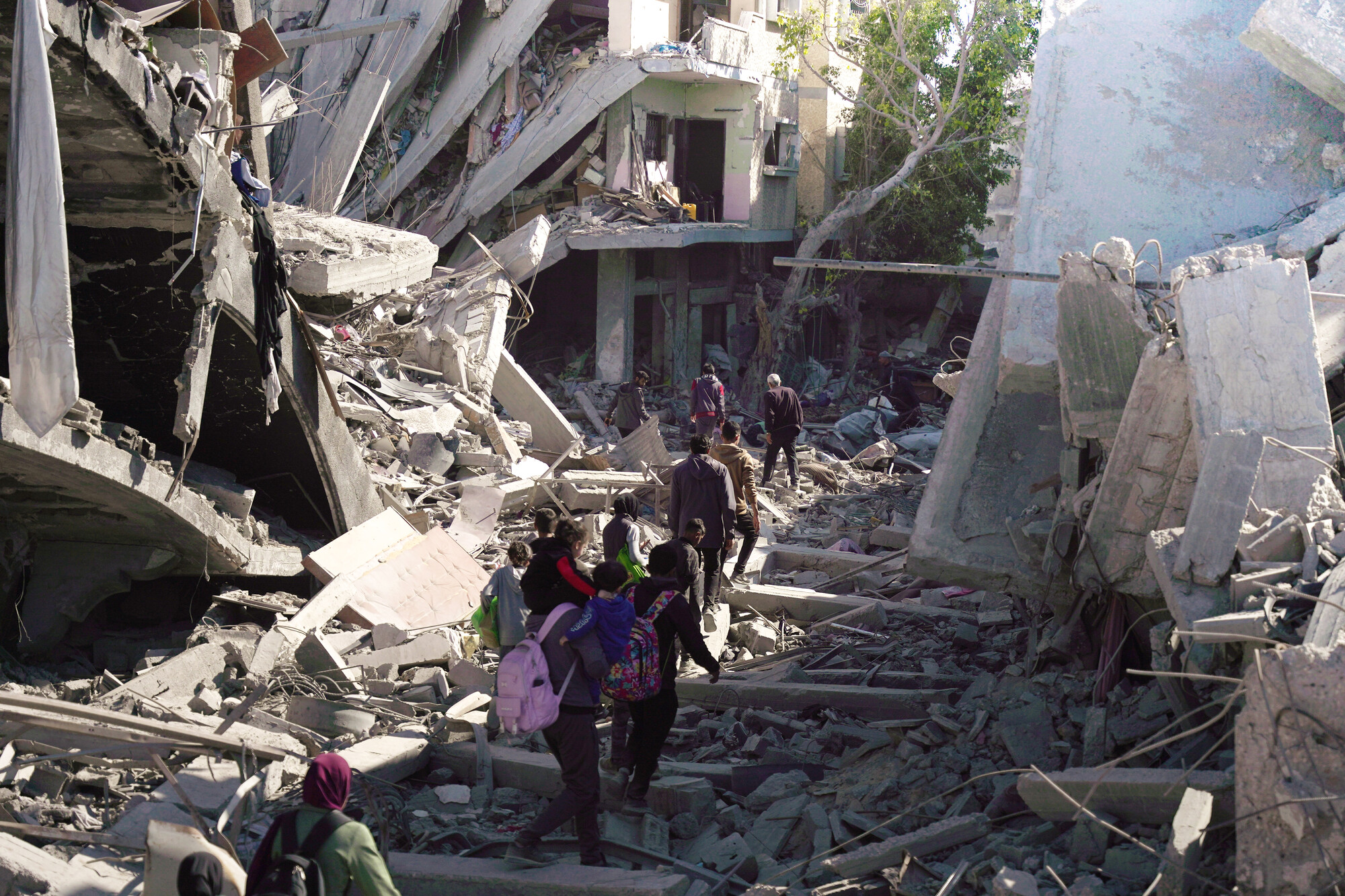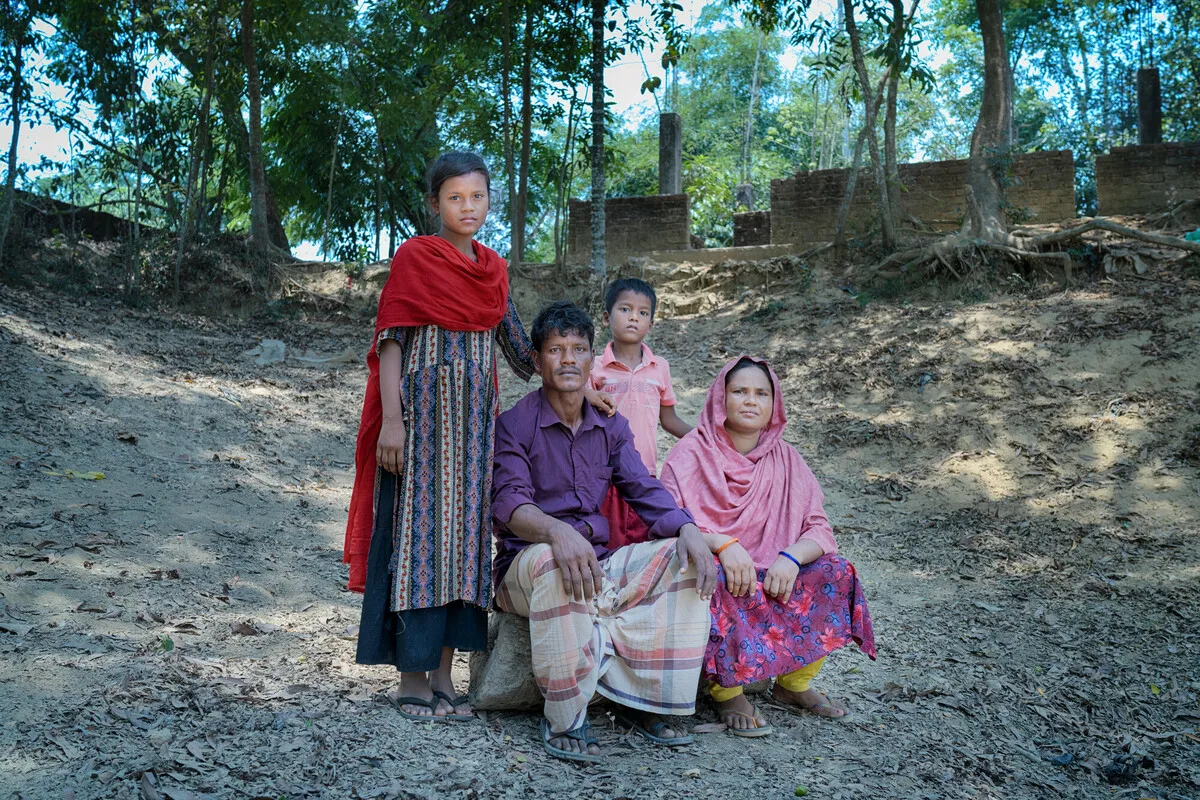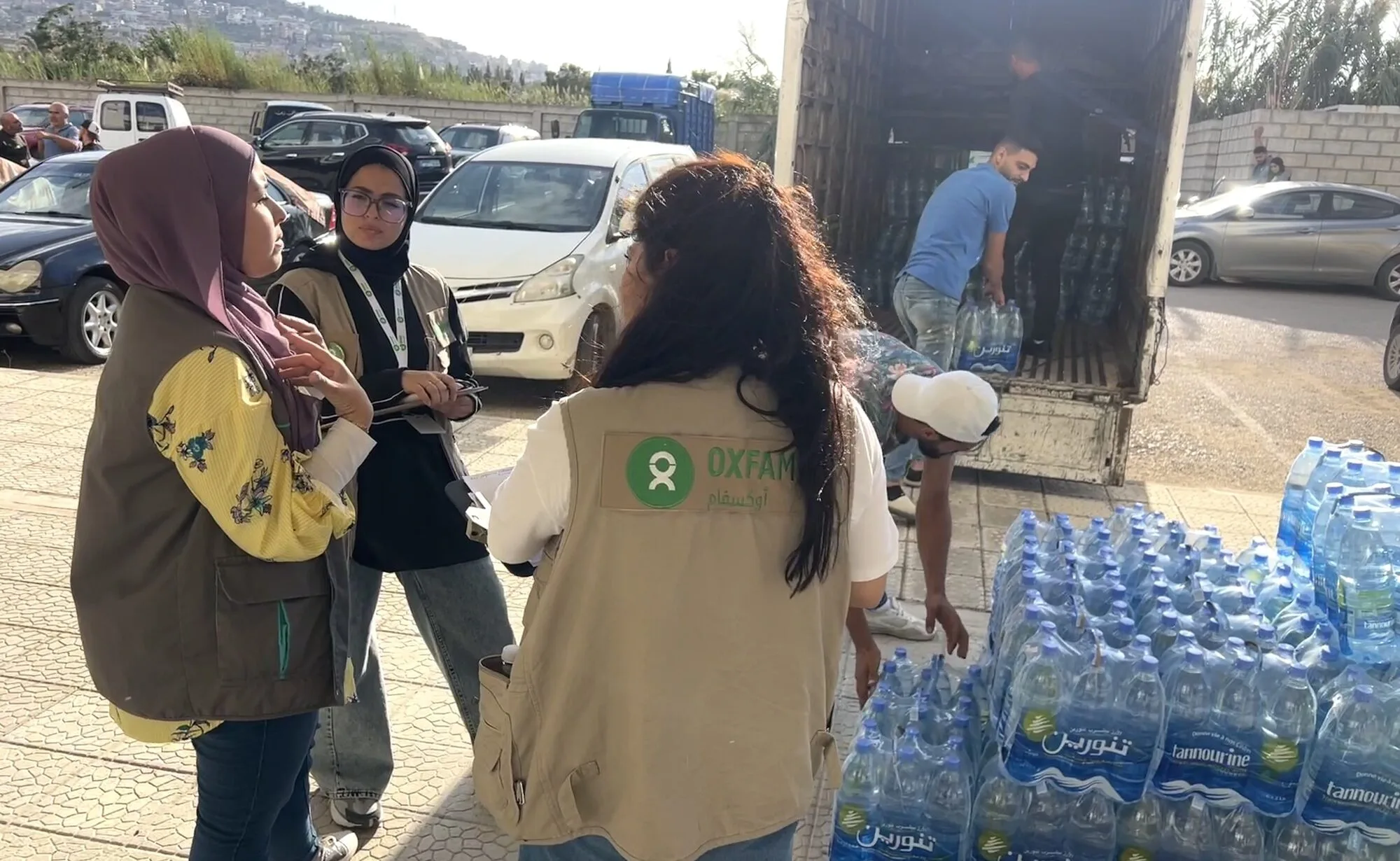There is something almost surreal about the setting for the Syrian peace talks taking place in Switzerland this week. Montreux is breathtakingly beautiful, the snow-topped Swiss Alps rising starkly over Lake Geneva. Yet this is where world leaders are to decide the fate of Syria and to try and end the brutal war which has been raging there for the last three years.
Sadly we found last night that other than the warring parties, the critical mass of peaceful Syrian voices will be missing from these talks; as it often happens it is only “the men with guns” who will be represented.
Yesterday I spent the day with some very inspirational Syrian women who have been organising themselves to take part in the – much hoped for – political process expected to emerge from these talks. Oxfam has been working alongside Syrian women’s groups to push for a place for civil society at the negotiating table.
Rim Turkmani from Madani, a Syrian civil society organisation, said: “If these were serious peace talks then civil society organisations would have been at the table, everyone knows that without women and civil society peace is simply not sustainable.”
This week in Montreux, the international community have largely chosen to ignore and marginalise Syria’s peaceful majority. Yet Syrian women’s groups and wider civil society organisations have been working for peace all along. Through their efforts to provide aid and promote reconciliation, they have become experts on the realities on the ground, the needs and aspirations of ordinary women and men across the country. Now they are claiming a space in the formal peace process to ensure that the hopes and priorities of Syrian civilians are heard by all parties to the conflict.
Syrian women set an example for peace
Syrian women have made practical proposals for what civil society participation could look like. They have chosen delegations, they have worked hard to overcome their differences and unite around their commonalities – the respect they have for human life, and their insatiable desire for a free, democratic Syria where the equal rights of all are respected. Coming together from across the political spectrum, they have demonstrated that they can embrace diversity and are setting an example of maturity, unity and perseverance to the international community and the warring parties in Syria. Yet still they are not in the room – and we have so far heard no argument why not.
The Geneva II Peace talks represent a glimmer of hope for Syria to reach a peaceful solution to the conflict. All Syrians need to be able to shape and express their vision for a future Syria. However, at the moment Syrian women and other civil society members are not included in the negotiations – and they must be to create a sustainable peace.
Oxfam knows from experience around the world that unless women and a broad range of civil society groups including business leaders, faith groups and youth are included in the process, no peace agreement is likely to last.
By Shaheen Chughtai, Deputy Head, Humanitarian and Security Issues
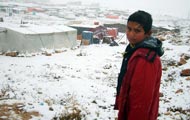
Your support will help Syrian refugees through the bitterly cold winter.
